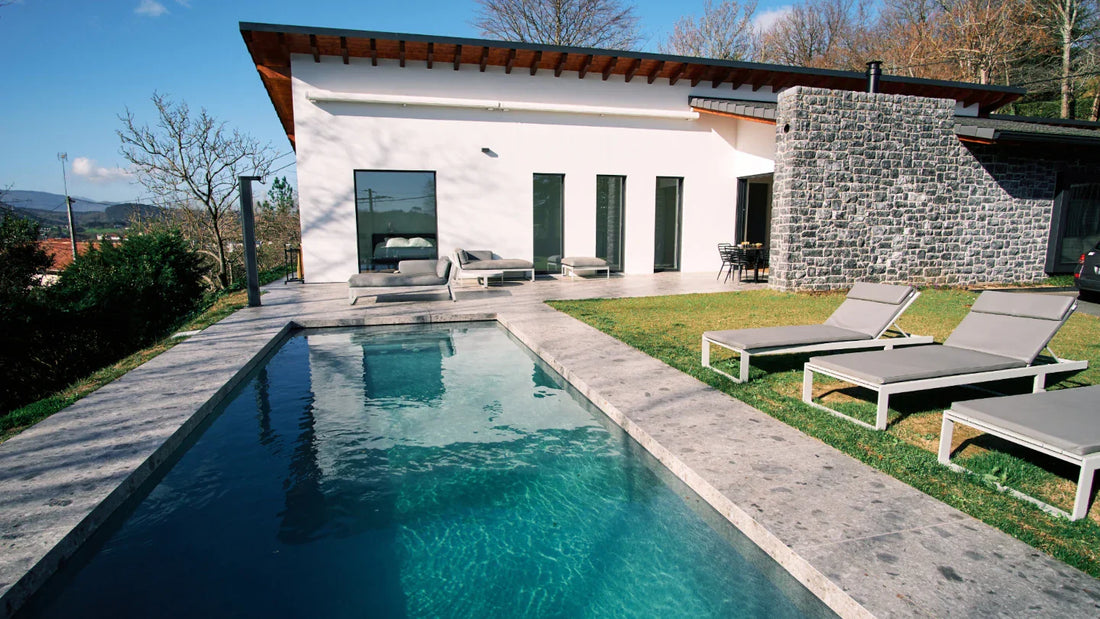This article deals with liability in the event of drowning in France and is part of a series of articles on safety requirements for swimming pools: Which swimming pools are concerned by the obligation to install a safety device?
The pleasure of having a private swimming pool can quickly turn to tragedy if someone drowns. The question of ‘who is responsible’ then becomes an important one. This article explores the various aspects of liability in France, from the obligations of pool owners to the recourse available to victims.
The responsibility of pool owners in France
Legal obligations in France in terms of safety
French law, via articles L134-10 and R*128-1 to R*128-4 of the Code de la construction et de l'habitation (Building and Housing Code), requires the installation of one of the following approved safety devices for outdoor swimming pools which are totally or partially in-ground:
- Barriers: blocking access to the pool, they must comply with standard NF P90-306.
- Alarms: these must detect any intrusion or fall into the water and sound the alarm, in accordance with the requirements of standard NF P90-307-1.
- Safety covers: these must cover the entire surface of the pool and resist the weight of an adult. They must comply with standard NF P90-308.
- Pool shelters: preventing access to the pool and covering its entire surface, they must comply with standard NF P90-309.
Failure to comply with the obligation to install approved safety equipment can result in a fine of up to €45,000. In the event of an accident, this fine may increase still further, and criminal penalties may also be imposed.
Even if above-ground, inflatable or demountable pools are not subject to specific regulations on the installation of an approved safety device, it is strongly recommended that they have protection equipment to guarantee safety.
Preventive measures against drowning
In addition to the compulsory devices, it is possible to limit the risk of an accident or its consequences:
- Permanent and constant surveillance: even with safety devices in place, supervision of bathers (particularly children) is essential. It is advisable to appoint a single supervisor for each child to avoid a ‘witness effect’.
- Regular maintenance: equipment in good condition ; clean, non-slip pool edges ; and clean, chemically balanced water are essential for safety
- Anti-drowning T-shirt: to protect children around the pool when they are not supposed to be swimming, they can be fitted with an anti-drowning T-shirt for children
- First-aid training: it is recommended that owners and supervisors be trained in rescue and resuscitation techniques
To find out more, read our article on: Keeping children safe near swimming pools: what are the options?
The supervisor's role during bathing
The importance of appointing a person responsible for effective supervision
Supervision is a crucial element of safety, especially for young children. Here are the essential elements to consider when setting up effective supervision:
- Clarity on who is responsible: designating someone to be responsible for surveillance makes it clear who is in charge of safety at any given time. This avoids misunderstandings and ensures constant vigilance. We even recommend that you appoint one supervisor for each child.
- Organisation: if several people alternate as supervisors, it is essential to draw up a clear schedule and ensure that each person in charge is aware of his or her obligations.
- Focus: surveillance requires sustained attention. Designating a single person to be in charge avoids dispersal and ensures that someone is always paying attention. When tired, it is advisable to change the person in charge.
Protocols to follow during surveillance
The supervisor, whether a professional or a private individual, must communicate the necessary prevention messages and be able to act if necessary. This means:
- Constant visual surveillance: the supervisor must maintain constant visual contact with the person to be protected, particularly if they are a child or a vulnerable person
- Risk anticipation: supervisors must be alert to risky behaviour, such as dangerous games, reckless diving or signs of fatigue
- Clear communication: the supervisor must clearly communicate safety rules and give precise instructions to the person to be protected
- Quick response: in the event of an incident, the designated person in charge must be able to react immediately and effectively; he or she must therefore remain close to the pool and not be hindered in any way
- Safety equipment and telephone nearby: the supervisor must ensure that rescue equipment (board, pole, etc.) is easily accessible and within reach, as well as a telephone to call for help in the event of an emergency
- Knowledge of first aid techniques: the supervisor should be trained in life-saving techniques and cardiopulmonary resuscitation (CPR)
- Ensure continuity of supervision: if the supervisor has to be away, even for a short time, he or she must ensure that another person takes over from him or her
Implications in the event of a drowning accident
In the event of drowning, in France, the pool owner may be held liable.
Legal consequences for the owner in France
According to the article L183-13 of the French Construction and Housing Code (replacing article L. 152-12 since 2020) and the article 221-6 of the French Criminal Code, in the event of non-compliance with the requirements or absence of a safety system and in the event of drowning, the owner is solely responsible for the damage caused to the victim and is liable to the following penalties:
- If they are guilty of unintentional recklessness, they are liable to a fine of €45,000 and 3 years' imprisonment
- If they have committed wilful recklessness, they are liable to a fine of €75,000 and 5 years' imprisonment
The owner may be prosecuted for unintentional manslaughter where negligence on his or her part is proven, and for damages under civil law. Penalties depend on the circumstances of the accident and compliance with legal obligations.
Determining fault and responsibility
Determining responsibility involves establishing:
- Failure to comply with legal safety obligations.
- The supervisor's fault (negligence, carelessness).
- The causal link between the faults and the drowning.
In France, the pool owner can be prosecuted for negligence in installing and using an approved protective device. Lack of supervision (parental or other) may also be highlighted in the event of a judgement, as has been the case in some court cases.
Recourse available to victims in France
What to do after an accident
When the accident occurs away from home, victims or their families can:
- File a complaint with the police.
- Take legal action to obtain compensation.
- Involve civil liability insurance of the third party who owns the pool.
If subscribed to, and subject to certain conditions, personal accident insurance can also be taken out, even if the drowning occurred at home.
Depending on the procedure involved, the stages vary and the time taken can run to several years, particularly in the event of a legal case going all the way to the Court of Cassation.
Possible types of compensation
Compensation may cover :
- Medical and hospital expenses.
- Moral and physical injury.
- Loss of income.
The impact of insurance
The role of insurance in drowning cases
Insurance plays a crucial role in covering the financial consequences of drowning accidents.
The main types of insurance policies involved in drowning compensation are:
- third-party liability insurance of the pool owner, if the accident occurs outside of the home,
- life accident insurance.
Insurance policies available to pool owners
It is essential to declare the existence of a swimming pool to your insurer.
Owners should check that their home insurance policy includes civil liability coverage for swimming pool-related accidents. There are also specific insurance policies for swimming pools, particularly through options associated with home insurance policies.
In conclusion, the safety of private swimming pools is a shared responsibility in France. Owners must comply with their legal obligations and adopt rigorous preventive measures; in the event of drowning, they can be prosecuted and punished for proven negligence. Active supervision during and after swimming is also essential.




